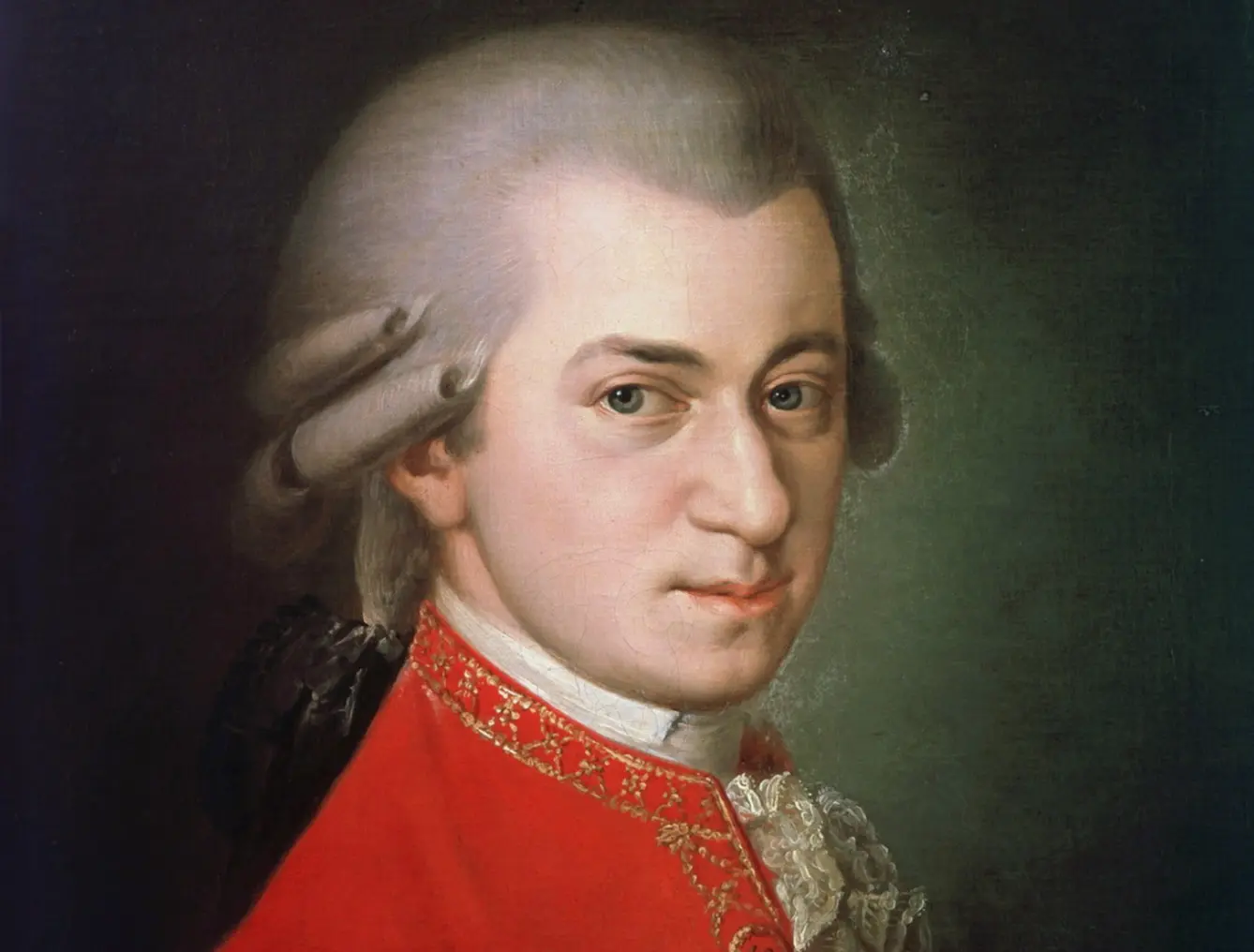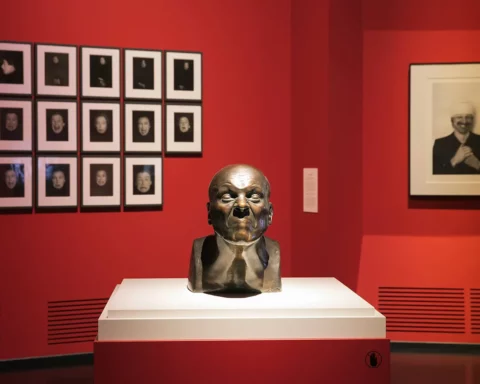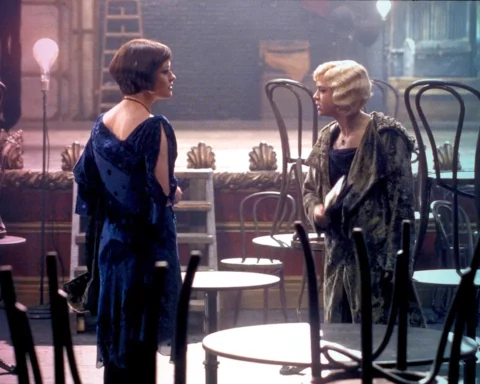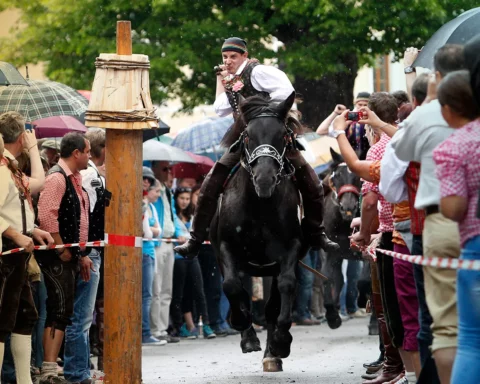Johannes Chrysostomus Wolfgangus Theophilus Mozart was born in Salzburg on January 27, 1756. His parents considered his birth to be a miracle, and so he was. Mozart, or as he liked to be known, Amadé Mozart, was a child prodigy. His musical genius was unlike any other, and he awed other great minds of his time, such as Haydn or Goethe.
The Mozarts: Austria’s Jackson 5
The Mozart family toured courts of Europe, where they presented their musical talents (or actually, as some remark, where an extravagant father exploited children’s unique talents, but that’s a topic for psychologists to decide). Mozart’s father, Leopold Mozart, and his only sibling, a sister, Maria, were also very gifted musicians.
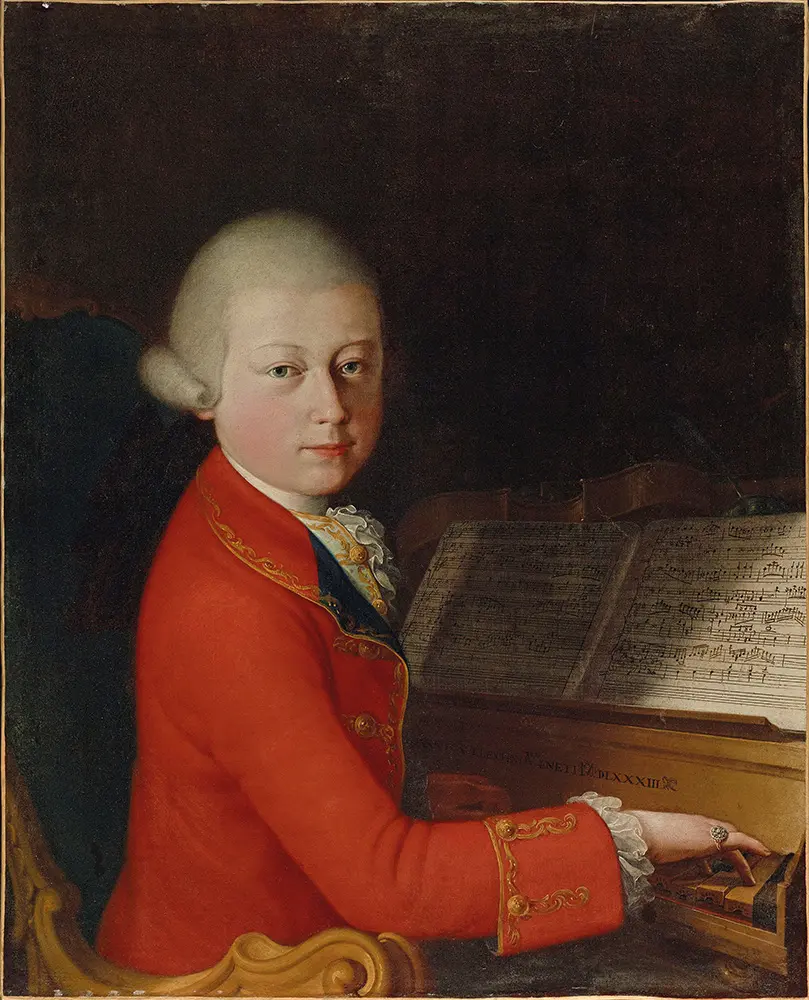
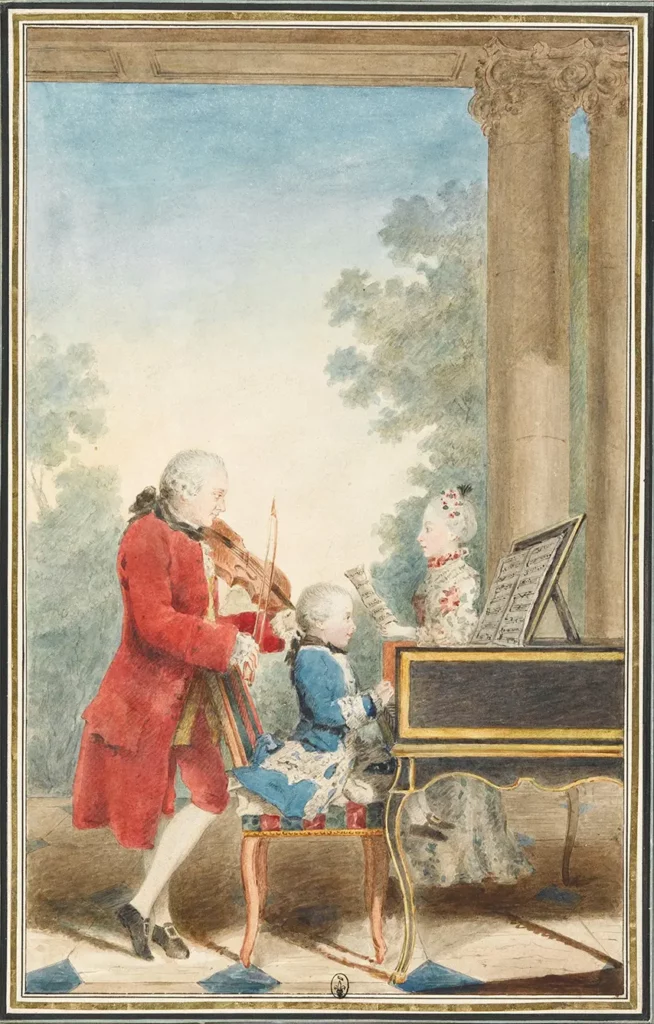
In fact, rumor has it that Marie Anna was equally prodigious to Mozart (some claim she might have been even more talented). Still, being born at a time when women were not allowed to have careers (unless morally questionable ones), she was forced to stop performing. She did, however, continue to pursue her love for piano and gave piano lessons, which gave her a good source of income. On the other hand, Mozart was free to flourish, and flourish he did.
What’s a child to do with no video games?
Just what can a child compose? It turns out that, if your Mozart, quite a lot. Needless to say, Mozart could play instruments from a VERY early age (he is said to have been able to learn a new song on the clavier at the age of 4 in less than 30 minutes). He was able to compose and improvise before he was able to notate.
And then he is said to be able to notate before he was able to write. Whichever way you look at it, Mozart wrote his first opera, Apollo et Hyacinthus, when he was just 11 years old and his first mass at the age of 12. Another mind-blowing fact is that over half of his symphonies, of which he composed more than 50, were written when Mozart was between 8 and 19 years of age!
Mozart’s achilles heel
He did have an Achilles heel, believe it or not. Mozart hated… the trumpet. In fact, there are accounts of how, in his childhood, he was terrified of the instrument. He could not (or did not want to) learn how to play it, and in later life, he (by comparison) scarcely included it in his compositions. However, he did seem to develop a love for woodwinds (clarinet) and composed whole pieces for horn (brass instrument) as one of his best friends played that instrument. But trumpet? No, thank you, says the master!
A cheerful bloke who liked his billards
You could think that there are many myths surrounding such an influential person, but, in fact, a lot that we know about him is well-documented and true. Common misconceptions (like that he was buried in a pauper’s grave or that he was very poor) are half-truths (he was buried in an unmarked grave, what was then standard practice for the middle class, and he actually was wealthy – just suffered from shopaholism).
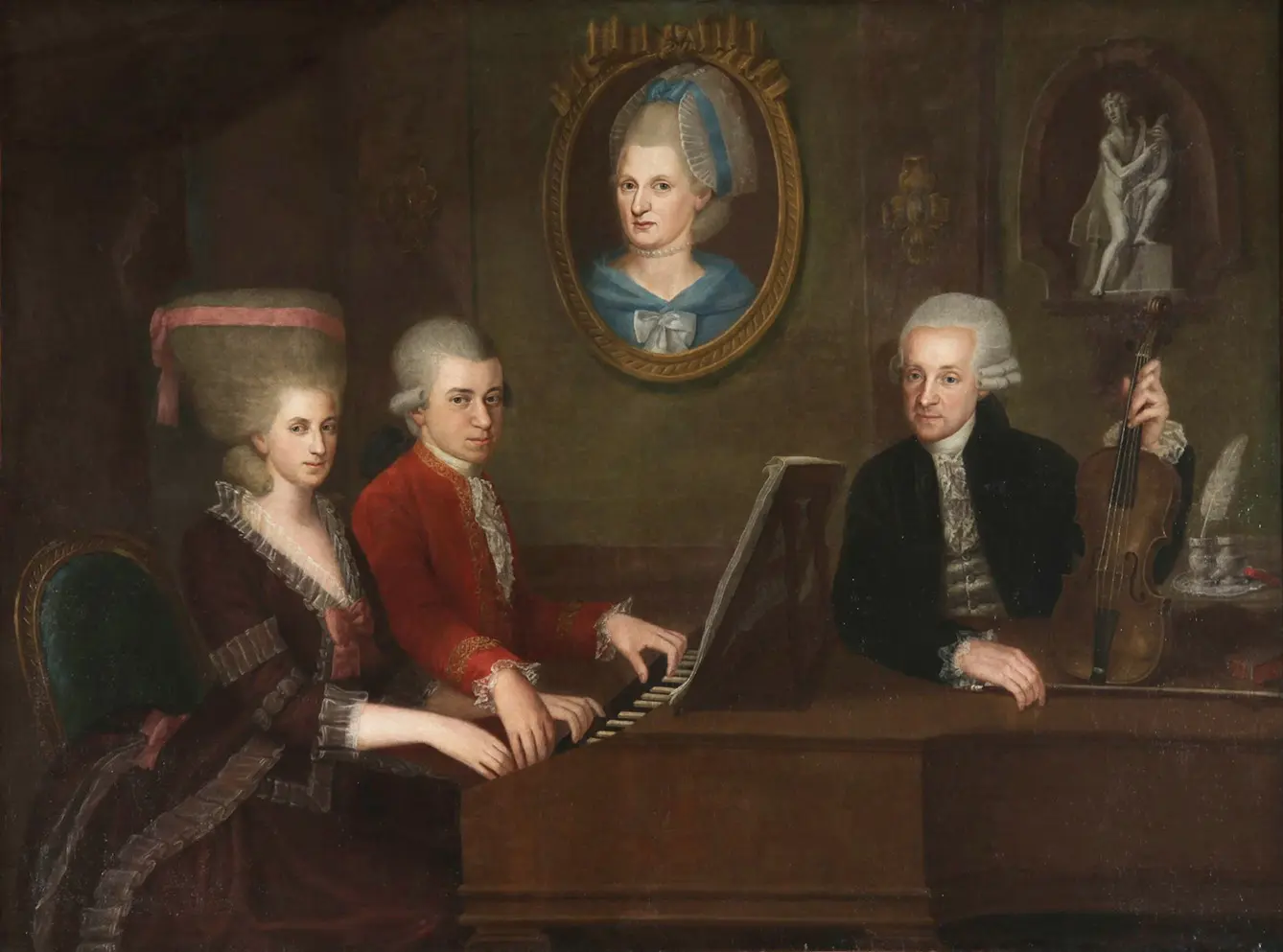
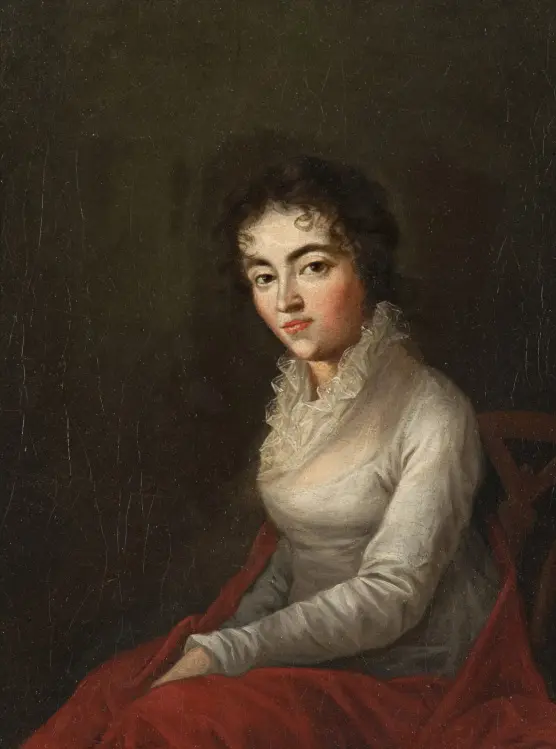
Mozart is said to have been a very bright and cheerful person of pleasant appearance, though short, even for his time. He wrote many lovely letters to his wife, Constanze, whom he seemed to have loved dearly. He enjoyed toilet jokes. In fact, he enjoyed jokes in general – he loved playing practical jokes on his friends. He even composed some mocking works (which included disharmony, making it seem the musicians are hitting wrong notes), which some speculate were to make fun of lousy composers.
There are also records saying he successfully married his love for toilet humor with music. One fine example can be seen in a story telling us that, after a woman rejected him, he improvised a song for her with lyrics saying she should “lick his bottom.” (She happened to be his to-be wife’s elder sister, so all ended well in this case).
When his wife was asked about his everyday disposition after his death, she answered without hesitation that he was always very cheerful. Upon his premature death (also surrounded by myths), his popularity boomed and remains high to this day.
The pride of Austria
Austria is rightfully proud to be the motherland of Mozart. We know of over 600 works by Mozart, and God only knows how many were lost, never written down, or burnt by Constanze after her husband passed away. Today, a three-meter tall statue in Salzburg, which was unveiled 51 years after Mozart’s death in the presence of his sons (neither had children of their own), reminds us of his genius and how much he achieved in his short 35-years-long life, which he enjoyed to the fullest. To commemorate Mozart’s 250th birthday, all church bells in Salzburg chimed at the exact hour the composer was born.
When it comes to his resting place, the practice of the time was that, ten years after they were buried, the bones of those laying in common graves were dug up to free-up space for more to come. There is no evidence that the skull held today in Salzburg indeed belonged to Mozart, nor that the gravestone marking the more-or-less location of his burial is standing in the exact place. But this all seems irrelevant since, through his music, Mozart is very much alive and a pop icon still in the 21st century.


